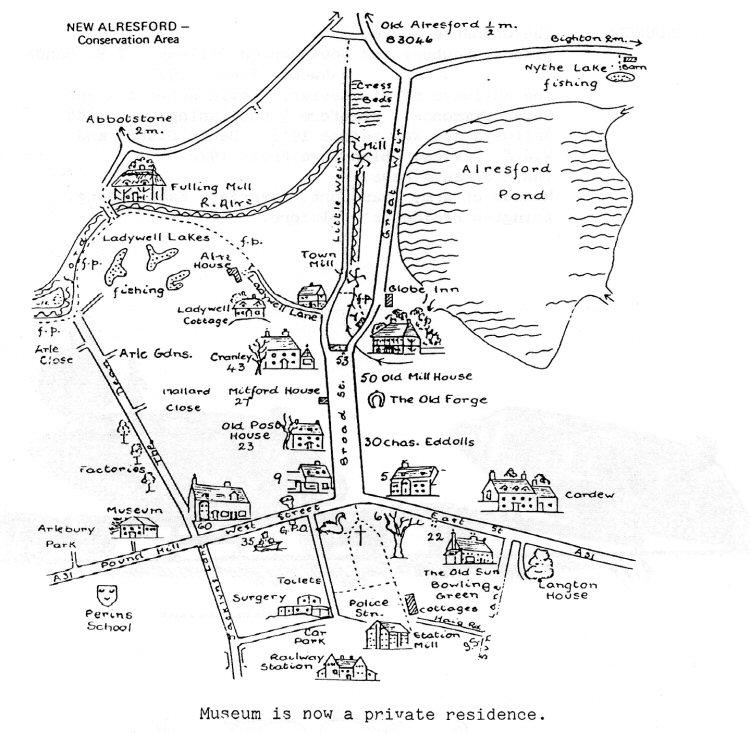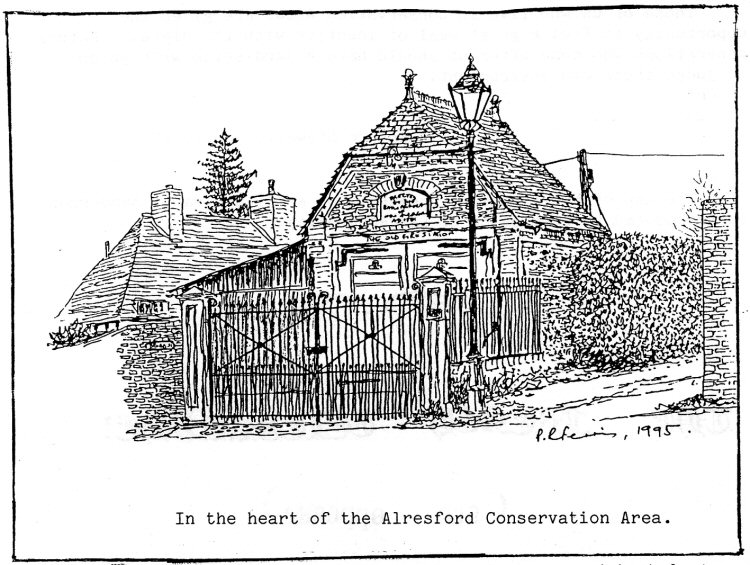CONSERVATION AREAS
Why do we have, or need, Conservation Areas? Is it to attract visitors or tourists? Partly perhaps but, no, it is to give to their inhabitants the opportunity to live in an area where change is held in check for a while and where varied surviving buildings from the past make a harmony of architecture which has grown by accident, as here in Alresford in Hampshire, or by design as in Bath or Brighton.
They, the Conservation Areas, should have a calming effect on their inhabitants, their neighbours or, indeed, their visitors. These little gems of place can be oases in the turmoil and excesses of the built environment of roads, motorways, flats, estates, factories and supermarkets with their accompanying dim of human generated noise.

These special places are then, places for people to live in - those who wish or can afford to. One might hope that some residents would be families with children where the calm and harmony might help to mould the characters and personalities of the next generation. The Conservation Area can give a distinctive sense of place and a link with history, whether it be an ancient market or a sample of nineteenth century industrial architecture. We must assume that environment does affect people in some ways.

If we look with care we can admire the skills of craftsmen of the past, the brickmakers, bricklayers, plasterers and carpenters, the latter who were often the "architects" of many humble buildings. Here we can see something, however distorted of a former culture.
When we come to Rural Conservation Areas, whatever their designated name, we should look for the opportunity to re-create mind and spirit and for an ecology which can have natural development. For countless millennia people have lived in non-urban places, first in a nomadic, then in a settled agricultural or pastoral existence. Folk memory of this, whether real or imagined can produce a feeling of kinship with the natural world. It ought to be essentially a quiet place, free from man-made noise or pollution.
It is sad perhaps that we feel the need to escape from towns and cities which are the very centres of civilization where people have developed both the arts and complex ideas. This is a reflection of the lack of quality of life in our overgrown cities and the availability of transport to take people away from them.